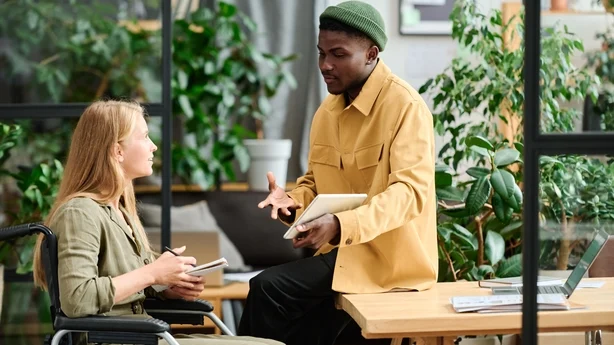Stay updated with the latest beauty tips, trends, and news from our salon experts. Our blog is your go-to source for all things beauty.
According to research by KPMG, 83% of CEOs expect a full return to office in the next three years. On the other hand, A LiveCareer survey found that 43% of employees were more fearful returning to the office than losing their romantic relationship or getting a divorce.
"We're seeing this enormous employee demand to work different," says Christine Armstrong, an internationally renowned expert on workplace dynamics. "A lot of CEOs are fighting it because working in remote and hybrid is hard work, and a lot of CEOs grew up in an office-based model."

Speaking at the Pendulum Summit at Dublin's Convention Centre, The Mother of All Jobs author shed light on the challenges facing modern professionals, detailing how organisations can adapt to evolving demands.
"There are lots of different ways of working - different forms of hybrid and remote - and employees will choose the version that works for them," she explains. "It will depend on your talent pool as to which one you can get away with. If you need highly sought after people, you'll have to find a model that they want to work in."
Having spoken with countless teams across a variety of industries, Armstrong says that, ultimately, employers should be more concerned by how people work rather than where.

In Ireland, according to Gallup's State of the Global Workplace 2024 report, just 10% of employees feel engaged with their work.
"The big debate about where we work is missing the point about engagement," Christine explains. "Lots of people don't feel seen and they don't feel heard at work. We very consistently see across the data that people want to make a difference, they want to matter - whether it's in their role or their organisation - they want to be seen.
Mass communication across e-mails and instant messaging services do not count as quality engagement, she adds: "Actually have some conversations with people. Three minutes of listening to someone else makes such a big difference."
When it comes to drawing in yourger talent pools, Armstrong explains that Gen Z have completely different needs than their predecessors.

While Boomers (1946-1964) were concerned with pensions and healthcare, and Gen Y (1981-2000) worried about a work-life balance, Gen Z (2001-2020) prioritise mental health and seamless tech.
"We have to create jobs that people want to do," Armstrong insists, nothing that one third of Irish people are considering moving abroad, while three in 10 have considered starting their own business.
"If you want a succesful business, you really have to think about a model that will work for your talent pool and you have to think about how you engage with people - talking to them, listening to them, making them feel valued. And then giving them a role that makes sense, that has meaning, that has a purpose."
After years of studying workplace dynamics, Armstrong says that - generally - workers across the board are looking for three attainable changes: fewer meetings, fewer messages, and technology systems that work.
When it comes to the future, Armstrong says that AI is something that employers will need to take into consideration as they plan the next five years.
"I think that's going to be the big one: how does it play out, how do we get people engaged, how do we make it add value and connection and not deplete from it."
The 2025 Pendulum Summit takes place at the Convention Centre in Dublin on 8 and 9 January.